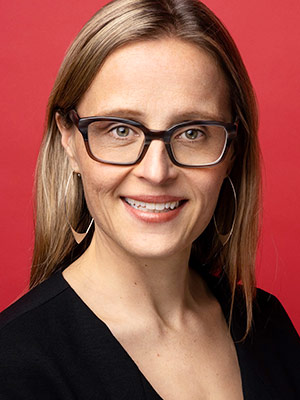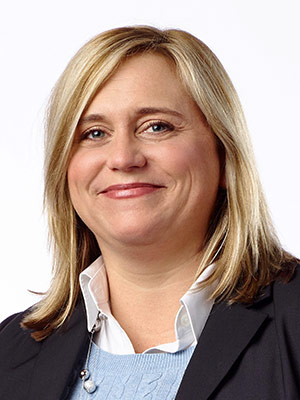Background
We believe that the market currently lacks a meaningful, simple, and credible mechanism through which late-stage private companies, companies preparing to go public, and early-stage public companies can clearly demonstrate their environmental, social and governance (ESG) credentials.
Accordingly, we have supported the creation of the ‘Sustainability Principles and Objectives Framework’ (the “SPO Framework”). The SPO Framework aims to apply well-established ESG principles to address a specific gap in reporting frameworks suitable for companies in a phase of maturity between late-stage private and early-stage public. It is our hope that the creation of the SPO Framework will further focus attention on the fundamental importance of sustainability in business and provide a valuable tool for companies and their stakeholders in their efforts to facilitate and support sustainability and ESG practices.
The Sustainability Principles and Objectives Framework
Approach
The SPO Framework is designed to ensure that a company at this stage of development takes into consideration positive ESG outcomes, as well as the need to mitigate negative ESG factors, and is dedicated to meeting a high standard of ESG criteria across its business.
Under the SPO Framework, a company should meet evaluation criteria across several ESG categories. These criteria have been established in conjunction with, and supported by, an advisory council (the “Advisory Council”), such as a minimum ESG rating, a stakeholder-centric mission and purpose, best practices on climate responses, value chain, people management, and corporate governance, transparent reporting of ESG practices and matters, and commitments to make meaningful progress on important ESG matters. The SPO Framework also requires that an independent third-party assess the company’s performance against the SPO Framework.1
1 Materiality as used throughout the SPO Framework draws upon various recognized ESG reporting frameworks and may differ from the interpretation and application of that term as used in other settings.
SPO Framework
The SPO Framework2 (in its current form) is as follows:
Category No. 1
ESG Rating
Criteria No. 1
Company undergoes environmental, social, and governance (ESG) assessment from a widely recognized third-party ESG reviewer and discloses a summary of the assessment and credentials of the ESG reviewer. Company ESG performance should be in the top third of the ESG reviewer’s coverage universe. Company self-assessment is not permitted.
Timeline
At Initial SPO Evaluation Date
Category No. 2
Mission and Purpose
Criteria No. 2
Company clearly articulates how positive social and/or environmental impact is embedded in its business model, products and services as they relate to key stakeholders (e.g., customers, employees, suppliers, shareholders and external stakeholders) as evidenced through SEC filings and other publicly available company reports. Company can also meet this criterion through Public Benefit Corporation, Benefit Corporation or Social Purpose Corporation status.
Timeline
At Initial SPO Evaluation Date
Criteria No, 3
Company has either already reported, or commits to report annually on key ESG factors. Company may use one or more comprehensive reporting frameworks on financially material industry-specific sustainability-related risks and opportunities for an investor audience (e.g. the Sustainability Accounting Standards board, or SASB) and/or report on holistic economic, environmental and social impacts of the company’s activities and contributions for a stakeholder audience (e.g. Global Reporting Initiative, or GRI) or pursue an integrated reporting approach, in addition to meeting regulatory disclosure requirements. This reporting will also include clear and explicit reference to the company’s performance against the SPO Framework.
Timeline
Commit at Initial SPO Evaluation Date; Report annually
Category No. 3
Climate and Environment
Criteria No. 4
Company has either already reported according to Task Force on Climate Related Financial Disclosures recommendations, or commits to do so within 24 months of Initial SPO Evaluation Date, to demonstrate forward-looking understanding, management, and disclosure of climate- related risks.
Timeline
Commit at Initial SPO Evaluation Date; Report within 24 months of Initial SPO Evaluation Date
Criteria No. 5
- Company has already reported scope 1, 2, and 3 emissions AND
- Company has already verified scope 1 and 2 emissions at Initial SPO Evaluation Date and commits to verify scope 3 emissions within 6 months of Initial SPO Evaluation Date or explain why scope 3 emissions cannot be verified AND
- Company commits to report and verify Scope 1, 2, and 3 emissions annually.
Timeline
Report Scopes 1, 2, 3 at Initial SPO Evaluation Date; Verify Scope 1, 2 at Initial SPO Evaluation Date; Commit at Initial SPO Evaluation Date to verify scope 3 emissions within 6 months of Initial SPO Evaluation Date or explain why Scope 3 emissions cannot be verified; Report annually.
Criteria No. 6
Company commits to establish, within one year of Initial SPO Evaluation Date, a carbon emissions reduction target that:
- Aims for net zero emissions covering Scopes 1, 2 and 3 as soon as possible, and no later than 2040 AND
- Is aligned to a 1.5°C temperature scenario, with interim targets measured no later than 2030.
Company commits to make all viable efforts to reduce emissions before looking to purchase carbon offsets, which should be transparently disclosed, of high quality and verified by a credible third-party. If a company has significant Scope 3 emissions (over 40% of total Scope 1, 2 and 3 emissions), it should include all material categories of Scope 3 emissions in the target.
Timeline
Commit at Initial SPO Evaluation Date; Establish targets within one year of Initial SPO Evaluation Date
Criteria No. 7
Company has enterprise-wide policies or programs to address its most material environmental issues (e.g., water, waste/circularity, biodiversity, land use, chemical use, energy use, and natural resource use), as well as applicable occupational health and safety principles for employees. Company commits to report annually on progress.
Timeline
At Initial SPO Evaluation Date
Category No. 4
Value Chain
Criteria No. 8
Company has policies or programs designed to require Tier 1 suppliers to address its most material environmental issues (e.g., water, waste/circularity, biodiversity, land use, chemical use, energy use, and natural resource use). Company commits to report annually on progress.
Timeline
At Initial SPO Evaluation Date; Report annually
Criteria No. 9
Company has policies or programs in place to monitor and enforce Tier 1 supply chain labor standards based on core labor standards as defined by the International Labour Organization, or local legal requirements, whichever is higher. Such policies and programs are supported and verified by assessment and Company commits to report annually on progress.
Timeline
At Initial SPO Evaluation Date; Report annually
Category No. 5
People
Criteria No. 10
Company has made a commitment to achieve and maintain employee diversity (e.g., Gender/Race/Ethnicity/National Origin/Sexual Orientation/Religion/Disability/Age if legally permitted to collect such employee data) and reports currently and annually on progress, including aggregate data on representation, targets, job category, and compensation, and, in addition, commits to conduct ongoing training for personnel, leadership, and board members.
Timeline
At Initial SPO Evaluation Date; Report annually
Criteria No. 11
Company commits to report annually on progress towards its goals regarding the median pay gap and mean pay gap, as defined by local regulations or, where those do not exist, the Organization of Economic Cooperation and Development or International Labour Organization on gender and minority groups appropriate for their geography/ies.
Timeline
Commit at Initial SPO Evaluation Date; Report annually
Criteria No. 12
Company commits to establish, within one year of Initial SPO Evaluation Date, a human rights policy consistent with the UN Guiding Principles on Business and Human Rights.
Timeline
Commit at Initial SPO Evaluation Date; Establish policy within one year of Initial SPO Evaluation Date
Criteria No. 13
Company commits to establish and implement, within 24 months of Initial SPO Evaluation Date, a living wage requirement for all employees using a credible third-party measurement framework.
Timeline
Commit at Initial SPO Evaluation Date; Establish requirement within 24 months of Initial SPO Evaluation Date
Category No. 6
Governance
Criteria No. 14
Company has clearly articulated how the Board will oversee ESG-related matters, including strategy, risk, and reporting, as formally documented in the charter for one or more Board committees.
Timeline
At Initial SPO Evaluation Date
Criteria No. 15
Company has made a commitment to achieve and maintain board diversity (e.g., Gender/Race/National Origin/Sexual Orientation/Religion/Disability/Age, where legally permissible) and report annually on progress.
Timeline
Commit at Initial SPO Evaluation Date; Report annually
Criteria No. 16
Company has tied, or commits to tie within one year of Initial SPO Evaluation Date, executive remuneration to performance on ESG metrics, with disclosure of how the metrics relate to material ESG issues.
Timeline
Commit at Initial SPO Evaluation Date; Ties remuneration to ESG performance within one year of Initial SPO Evaluation Date
Criteria No. 17
Company has one or more dedicated ESG-focused executives, such as Chief Sustainability Officer or similar role.
Timeline
At Initial SPO Evaluation Date
Criteria No. 18
Company commits to align, within six months of Initial SPO Evaluation Date, its policy advocacy, political contributions, and trade association engagement with these sustainability criteria.
Timeline
Commit at Initial SPO Evaluation Date; Align activities within 6 months of Initial SPO Evaluation Date
Criteria No. 19
Company has a company-wide ethics policy and confidential channel for reporting concerns.
Timeline
At Initial SPO Evaluation Date
2 Materiality as used throughout the SPO Framework draws upon various recognized ESG reporting frameworks and may differ from the interpretation and application of that term as used in other settings.
Meet the Advisory Council Members
The SPO Framework has been created in conjunction with, and have been supported by, the Advisory Council, hosted by BSR and comprised of representatives from companies and investors, as well as cross-sector thought leaders, market participants, and stakeholders from across the investment community, academia, ESG framework providers, ratings agencies, law, and nonprofits, each serving in their individual capacities. In assembling the Advisory Council, we endeavored to create a group that is able to draw on the knowledge, experience, and expertise of stakeholders who are familiar with the evaluation and support of corporate ESG efforts. In doing so, the intent was to bring a balanced view and practical approach to the establishment of an objective SPO Framework. The current members of the Advisory Council are:

Margot Brandenburg
Senior Program Officer, Mission Investments, Ford Foundation

Mike Bufano
Chief Financial Officer, Allbirds

Andrew Cave
Head of Governance and Sustainability, Baillie Gifford

Aron Cramer
President and Chief Executive Officer, BSR

Tony Davis
Chief Executive Officer and Chief Information Officer, Inherent Group, LP

Michael Ellis
Chief Operating Officer and Chief Compliance Officer, Inherent Group, LP

Michael Jantzi
Founder, Sustainalytics

Hana Kajimura
Head of Sustainability, Allbirds

Cora Lee Mooney
Partner, PwC

Susan (Suz) Mac Cormac
Partner, Morrison & Foerster LLP

Tim Mohin
Chief Sustainability Officer, Persefoni AI Inc.

Laura Nishikawa
Managing Director, Global Head of ESG Ratings, MSCI Inc.

Alicia Plerhoples
Professor of Law, Georgetown University Law Center

Ben Ratner
Associate Vice President, EDF+Business

Bridget Realmuto LaPerla
Co-Head of ESG Research, State Street Associates, State Street Global Markets

Shashank Sheth
Director of ESG Metrics and Analytics, JUST Capital

Peter Singlehurst
Head of Private Companies, Baillie Gifford

Roy Swan
Director, Mission Investments, Ford Foundation

Martin Whittaker
Chief Executive Officer, JUST Capital

Lorraine Wilson
Managing Director, Investor Solutions, JUST Capital
The Advisory Council plays no role in determining whether a company’s performance is consistent with the SPO Framework.